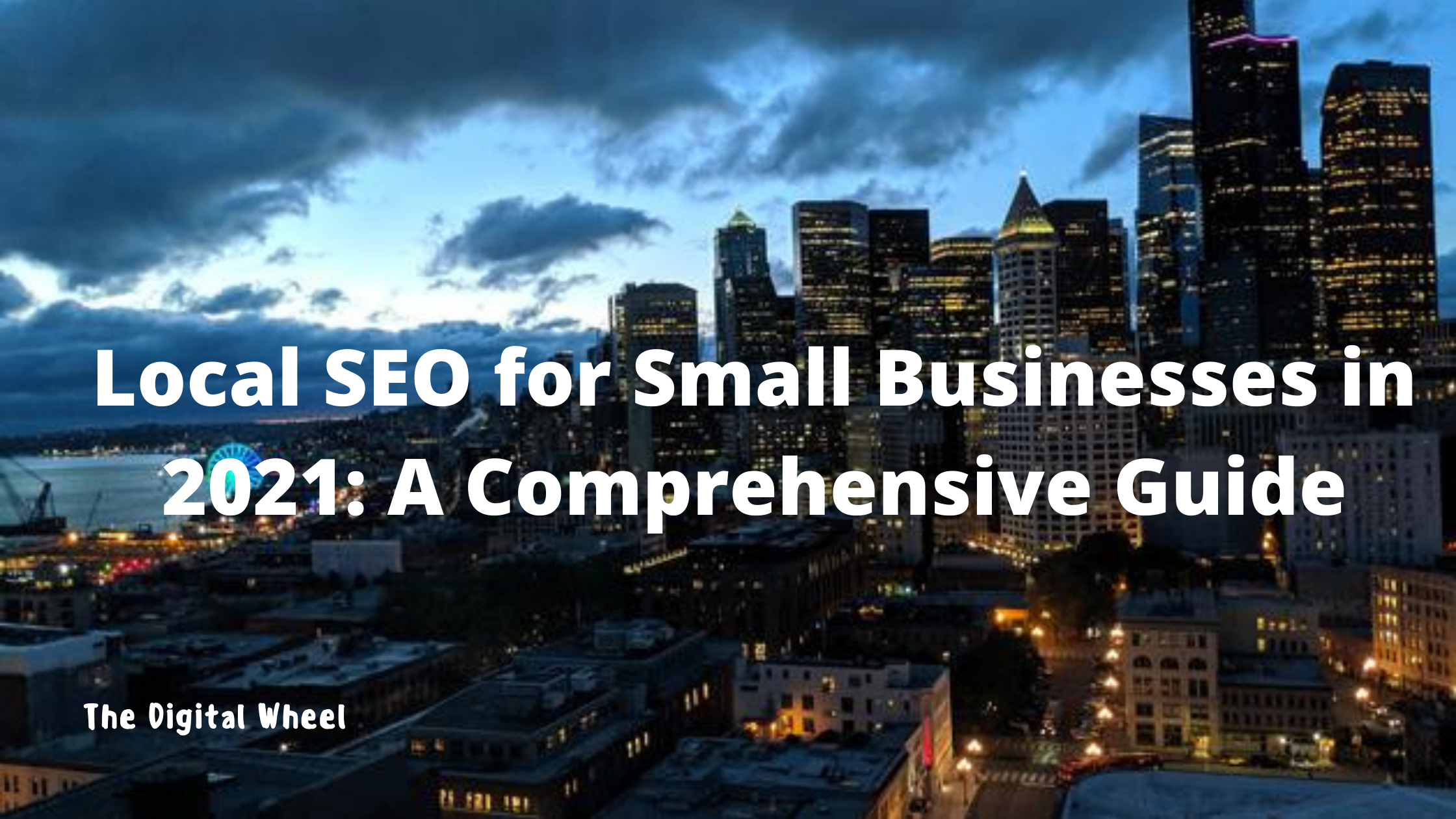The fact that 78% of local mobile searches lead to an in-store app purchase is tempting enough to understand the importance of SEO for small businesses.
This guide will talk about local SEO for small business, tips and tools, and how it is relevant for startups.
What is Local SEO?
As the term indicates, local SEO is the search engine optimization done for local businesses, mainly for enterprises operating at brick-and-mortar locations.
By improving their local SEO game through marketing agencies like The Nomad Digital, businesses can increase their organic traffic and SERPs visibility to customers doing searches within the nearby areas.
Hence, that separates general SEO from local SEO for small business.
Improving your local SEO means acquiring more traffic, leads, and conversions, as the strategy will be more applicable to your local customers. Consider it a wise decision to compete more strongly with bigger national competitors having a larger budget to spend at their disposal.
In doing so, a more focused approach can dilute the threat of more prominent companies that generally compete for broader keywords and rely on their brand awareness rather than value propositions to bring in traffic.

Although offering a pretty good volume, being in the dog food business, it would be foolish of you to target a broad keyword like this.
Hence, targeting a local area-based, long-tail keyword would be better to justify your local SEO efforts.
Related content: Introduction to SEO 101: Why is SEO Important for Your Business?
Local SEO for small business tips
Optimize your Google My Business account
Optimizing your google listings, commonly termed business profiles, is one of the best ways to rank higher on Google Maps and climb the rankings in local search results.
This is where you need to create a Google My Business account to make these optimizations. Once you have added all the required information, a business profile will be created, which shall start appearing in the Google local search results, Google Maps, and Google Search Knowledge Panel.
Follow the steps to make sure your business is optimized for GMB:
- Create your Google My Business account and verify its ownership.
- Add important information like your logo, operational hours, valid payment methods, offerings, and top-quality images depicting your products and services.
- Publish posts through your account announcing special offers, new product launches, events, etc.
- Ask your customers to share online reviews that would appear under your profile.
- Respond to the added reviews in a sincere, pleasant manner, importantly, specifying the location. For example,
We highly appreciate your feedback on (ABC) product in (city/state) and look forward to serving you again.
Thanks
(Company Name) team
If Google considers your business authentic, it can probably reward your business with a coveted sidebar in the Google local search.
Adding all the relevant information (as above) isn’t suitable for SEO purposes only, but you’re making it easier for customers to find you. More importantly, let’s not forget that the COVID-19 pandemic has disrupted consumer behavior and increased the inclination toward online shopping.
Engage on social media and add content on GMB
For Google, published content shared on social media is highly encouraged.
Having created a great GMB page, it’s time to share it on social media, further improving your search and search objectives.
Acquire reviews from satisfied customers
It might not seem much of local SEO for small business tips from a technical standpoint. Still, asking your happy customer to reciprocate their feelings and reviews optimizes your GMB presence and encourages new local visitors to buy from you.
So how do you tempt your customers to leave positive reviews?
- Ask for a review after closing a sale.
- Send a survey to your customers after a sale to filter out happy ones, and send them an email or text asking them to leave a review.
- Respond to existing reviews in a professional tone, and thank and address complaints assertively.
Optimize online directories and citations
Optimizing your online directories and citations is one of the best tips for local SEO for small business.
There are four map data aggressors that offer a considerable amount of map data for Yelp, Bing, Apple, Trip Advisor, etc.
The purpose is to verify that all the citations are consistent across all four data aggressors. Moreover, issues like grammatical mistakes, inconsistencies in abbreviations, and lack of other important information like office number, phone number, etc. can prove troublesome.
If you’re not making it easy and clear for Google to understand which information is correct, seemingly, it may show your business in search results.
Removing duplicate listings (if any) is a plus for acquiring an external inbound link by having the Chambers of Commerce membership in your community.
Conduct a local SEO audit
Once you’re done with the basics, you might be tempted to start with the real deal. First, you need to perform an SEO audit that will cover several sub-audits including Google My Business audit, Google Search Console, on-page SEO, competitor analysis, citation, and website audits.
- How does your GMB appear in the SERPs? Is the information accurate?
- Does your site have errors that would prove problematic in indexing? Is it crawlable?
- Has your site accommodated all the on-site SEO elements that would help in the ranking?
- Have you inserted all the correct citations in the top business directories?
- How does your site compete with your rivals? What are the gaps you need to acknowledge and fix? How well are your inbound links, content, and design doing?
- How well is your website performing in technical terms?
Reconsider your website’s internal linking
External backlinks directed to your website are the fuel cans for its authority score or domain authority. So, adjusting your site’s internal structure will also help you climb the SERPs ladder.
A clean internal structure helps your website as it supports navigation, hierarchy, and information architecture and spreads the page authority and ranking among other pages.
Optimize the meta description and title, content, headers, and URL
Whenever I publish a new blog post for my website, that’s a unique opportunity for my content piece to rank on a selected geographic keyword in the SERPs.
After completing the content piece, you must incorporate the selected key phrase in the meta title and description, header, URL, and content.
In doing so, you’re helping the search engine recognize and sort your content accordingly. Besides SEO-based content, you can also consider writing customer success stories and case studies.
Acquire inbound links through authority and relevance
Inbound links are some of the best resources to up your local SEO game. In other words, every inbound link tells Google that you’re a legitimate company.
You can acquire inbound links through partnerships and sponsorships, guest blogging, HARO, etc.
Networking and participation
You can start with your own personal network, including the Chamber of Commerce, business improvement districts, licensing bureaus, resellers and vendors, trade associations, and associated affiliates.
Community hosting and engagement
Conduct a webinar or participate in a community event promoting your local and creating and nurturing relationships with influential market personnel.
Furthermore, never feel shy when asking partners if they can feature your business on their directories.
Digital engagement
Yes, we’re talking about the always reliable guest blogging. List out top platforms for blogging and provide content of real value rather than selling your brand or only exchanging links.
Having your content and press releases published on top platforms not only get you quality backlinks but also generates a viral buzzword and encourage the platform owners to share your content on social media attracting media coverage.
Optimize for voice search
Voice commerce is the next big thing to arrive in the digital industry globally. Go through these statistics that should give you an idea of the future of voice search.

You better start optimizing for voice search as people are asking questions by speaking to their devices at this moment.
Obviously, speaking means people are using long-tail keywords instead of when they type. Hence, the more the reason you need to incorporate a more conversational tone and SEO-based phrases in your content.
For example, you’ll want to add the standard question-based prefixes in your keywords, i.e., what, who, where, why, how, and when.
At the same time, remember that optimizing for voice requires you to understand the user intent—such searches are done when a user needs a particular chunk of information.
For instance, if I am in the midst of a tea-making session, I need to have a quick, helpful answer on how many teaspoons of sugar I need to make a certain number of cups. Second, if a customer wants to know what are your business hours, optimize the answer for a prompt response.
Create local news-based content
A great content piece talks to the local audience on local issues. There is no better relatability to grab your local customers’ attention.
- Create content pieces covering local stories, events, and issues.
- Make videos on the CSR activities and local charity events in which your company often participates.
- Add location-based content to your web pages to serve people according to the relevant region.
Consider I am running a local BBQ restaurant in Pakistan. I’ll create web pages covering each of the significant locations in the country that I can cater to.
Further, I’ll create content for each location attending to their respective audience, prevailing issues, local cuisine trends, consumer preferences, etc.
Make your website mobile-friendly
It is easily one of the most commonly known tips we’ve been hearing for quite some time now, but its importance is worth mentioning for local SEO for small businesses.
Here are some of the vital mobile vs. desktop usage statistics to ponder over.
- Mobile phones registered 61% of visits to US websites in 2020, rising from 57% in 2019.
- At the global level, mobile phones drove 68.1% of all website visits in 2020, rising from 63.3% in 2019.
According to Think With Google, 30% of all mobile searches are made per location, and 76% of people using smartphones to search for something nearby visit the business within a day.
These statistics, only a few among many others, should be enough to convince you that optimizing your website for mobile is one of your most potent weapons for local SEO.
Here is what you need to do:
- Make sure the website loads quickly (ideally shouldn’t exceed 3 seconds)
- Use bigger fonts that are more prominent to the viewer’s eyes
- Only use relevant information, copy, and images (mobile screen sizes don’t allow much margin for stuffing in content)
- Incorporate intuitive UI for a fantastic UX
Incorporate local keywords
Your keywords should be relatable to your local customers, as relevant as it sounds for local SEO for small businesses.
You can use any keyword research tool, like Ahrefs, SEMrush, or even Google Keyword Planner, to filter specific search queries for a given region.
Once you have the list of locally relevant keywords, now incorporate them into your website’s meta title and description, web content, and URLs. In addition to that, you can also mention region-specific landmarks in your content.
For example, if you’re running a car repair shop in Downtown Dubai, you may write references like, “get your car repaired on Sheikh Zayed road” or “car repair shop just a couple of minutes drive away from Dubai Mall.”
Use a location-based “About Us” page
It might not seem much of an essential tip for local SEO for small business, but using the right locations on the right pages do help.
If you have your business in more than one place, location pages go without saying. Additionally, each location page needs content tailored to that specific location.
Add the following things to your location pages: store hours, individual descriptions for each location, name, address, and contact number, parking availability, testimonials, promotional offers, and Google Maps attached for each place.
But you have only a single location, an About Us with quality, unique content associated with local details is enough.

See the example of Marriott Hotel, Karachi. The website has included a separate page for the local area with necessary information like driving directions, nearby landmarks, and local attractions and activities.
Thoughts!
This completes our discussion on some of the best tips on local SEO for small business setups.
Do keep in mind the entire purpose of following the above tips is to make it easier for your local audience to find you quickly.
SEO and search engine algorithms change without warning. So you never know when Google will incorporate new features in its SERPs for local searches.
Hence, it’s essential to stay abreast of these trends and follow the above actionable tips to give your website a concrete foundation to deal with SEO changes.



